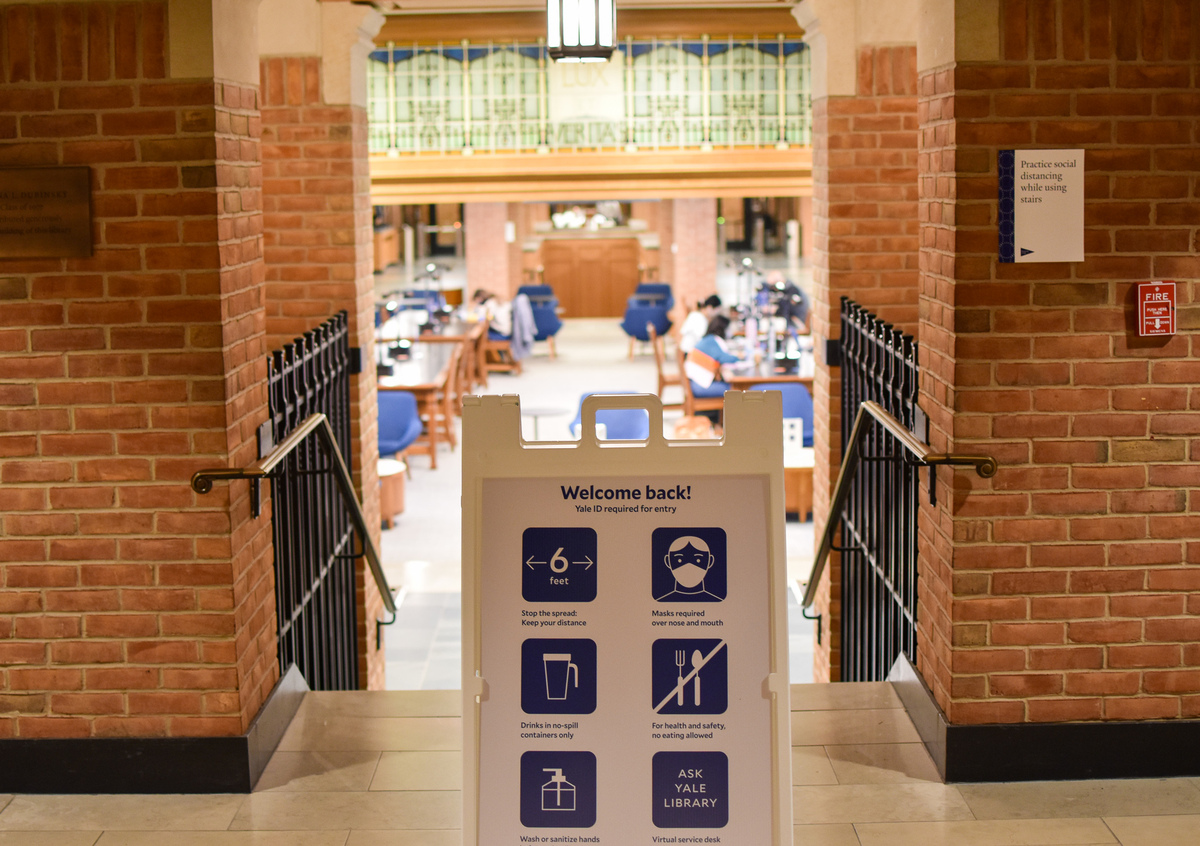Yale to lift classroom mask requirements
The University relaxed its COVID-19 policy, announcing on Tuesday that masking will soon be optional in classrooms.

Masking will be optional in most campus spaces — including classrooms — beginning next Monday.
The decision, announced via University-wide email on Sept. 20, follows the number of new reported COVID-19 cases rising in the beginning of the semester before falling over the past month. While the University continues to mandate vaccinations and booster shots, students are no longer required to test regularly.
“Masking is welcome anywhere on campus, for any reason, and the university will continue to make high-quality masks available to its community members,” COVID-19 Coordinator Stephanie Spangler wrote in the Tuesday email.
Last semester, immunocompromised students raised concerns that Yale’s decision to resume in-person classes, albeit with masks, made them feel “left behind” in Yale’s COVID-19 policy.
However, Yale will continue to require masks in healthcare settings and among students who have tested positive for COVID-19 or who have been identified as a close contact of someone who has tested positive for the virus. In addition, masking requirements may be reinstituted by state or local agencies.
In a previous statement to the News, Yale College Health and Safety Leader Julie Sweigard noted that the mask mandate had not been lifted “for the first weeks of the first semester” due to the arrival of students from all across the world. Now at Yale, instructors may choose to require masks in their own classrooms or instructional spaces.
Joseph Fischel, who teaches an undergraduate lecture titled “Gender, Justice, Power, Institutions,” said he was sympathetic to the administration’s decision to lift the mask mandate in classroom settings.
“I don’t envy the difficult decisions our administrators must make for our learning communities,” Fischel wrote in an email to the News.
Fischel further went on to explain that it was “a quite reasonable calculation” for administrators to believe that the costs of continuing the mandate “exceed” the costs of lifting it. He told the News that while he will not be requiring masks in the classrooms, he will “certainly reconsider” if students inform him that optional masking makes them too anxious to learn effectively.
Greek professor Maria Kaliambou wrote in an email to the News that she was “pleased” with the announcement and expected not to require masks in her classroom — although she said she understands if some of her colleagues might want to do so. As a language teacher, however, she feels the use of masks poses a challenge to classroom instruction.
“It was challenging to teach with a mask a foreign language, because especially at the elementary level seeing the lips for correct pronunciation is important,” Kaliambou told the News.
Greta LaFleur, who teaches a course called “American Scholars,” told the News that she will “definitely” continue to require masks in the classroom.
Another professor, Langdon Hammer, wrote in an email that he was “happy” to leave the decision of whether or not to wear a mask to the student.
As of Sept. 19, there is a 99.6 percent vaccination rate for Yale College undergraduates.
The News updated this article to more accurately review the views of Joseph Fischer.







